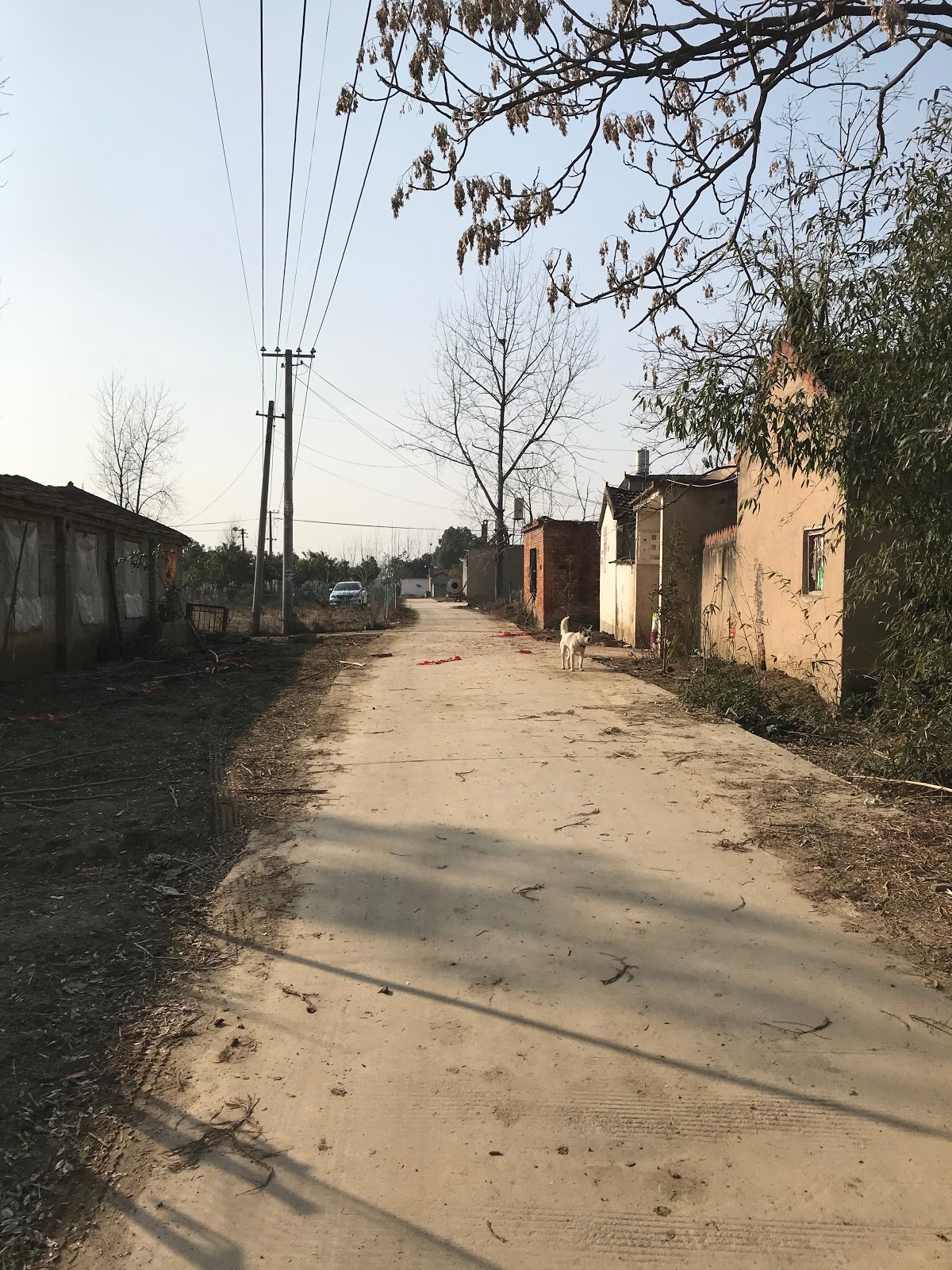Love in Rural China: Like Father, Like Son

A father and son struggle with the frustration of knowing where they’re supposed to be but not knowing how to get there.
Editor’s Note: In 2018, our correspondent some time with a family in Sanpi 伞陂, a toown in Huangchuan County, Henan, about 230 kilometers from Wuhan. She returned this year to spend Spring Festival with her host family in hopes of answering a question: What is love in rural China?
This five-part series describes love and the way it manifests itself in five kinds of relationships, between:
- Mother and daughter
- Oneself
- Young lovers
- Father and son
- Husband and wife
Note: the names of the people in these stories have been changed.
Today’s story is about Yu Xiaoqing 余晓青, 22, and his father, whose expectations for him is a cause of friction.

A car pulls into the driveway and Yu Xiaoqing 余晓青 leaves the kitchen to see who has come. As he approaches the car, a man steps out of the driver’s side.
“Dad, you came,” Xiaoqing says, plainly.
His dad, Yu Yaohong 余耀红, lights a cigarette. He has a triangular face and dark skin. His fingers are nearly black and his eyes tinted yellow. He looks worn out. Xiaoqing, though he shares his dad’s triangular face, looks innocent. His skin is fair, and his eyes, wide.
His dad pulls out his phone and listens to a voice message.
“The drive was okay?” Xiaoqing inquires.
Yaohong nods his head once.
Xiaoqing was born in Sanpi, Henan, 22 years ago, and was raised there by his grandmother. His parents left for the city to find work shortly after he was born. Growing up, he saw his dad about once every two years — his mom, Jieping 杰平, a little more than that. (You can read more about his parents in our earlier story, The Auntie of Sanpi.) Xiaoqing dropped out of college before he could graduate. He didn’t take much interest in it, nor did he understand the importance of it. He just wanted to be somewhere warm. So, he moved to Shenzhen to find work. This year, he’s made the nearly 20-hour train ride (without a seat) back home for the holiday.
After his dad settles in, Xiaoqing returns to the kitchen to help his grandmother with meal preparation. His dad soon appears at the doorway.
“Come out here,” he politely requests.
Xiaoqing stands and picks up the stool he had been sitting on. He carries it out of the kitchen and places it as far from his father as he can. He sits down, and his eyes immediately go to his feet. The two of them look like strangers who regret bumping into one another.
“You’re not making any money working at a restaurant in Shenzhen,” his dad demands.
“Enough for now,” Xiaoqing replies, but not defensively.
“Enough for what?”
Xiaoqing keeps his eyes fixed on the ground.
“Do you have a girlfriend?”
He shakes his head no. His dad lights another cigarette.
Xiaoqing describes himself as “pretty simple.” He’s energetic, easygoing, and more than anything, he wants to please the people in his life. But he has no idea how to do that. So, instead, he continues to float — desperately waiting for someone to stick their hand out and pull him in.
“What are your plans? You can’t make a living working in a restaurant.” His dad’s voice gets louder, and his words, faster. “You’ve got to think about someone other than yourself. You’ve got to grow up.”
“I know,” Xiaoqing replies softly.
Xiaoqing’s little sister, who is 10 years younger and gnawing on a piece of pomelo, emerges between the three of them.
Her dad looks at the 12-year-old and says, “Xiaoyu 晓玉, you’ve got to study hard. You’ve got to do well in middle school, go to high school, and get into college.”
“Otherwise…” her dad continues, “you won’t be able to make any money. Don’t be like your brother. Your brother 不行 (bùxíng).”
Buxing. The best way I can think to translate that is failing. “Your brother is failing.”
Later, when I ask Xiaoqing if he’s ever resented his parents for leaving him behind, he shrugs and says, “They didn’t know any better. They thought they were doing what would be best for me. They love me more than anyone else. They have done more for me than anyone else.”
“But how do you feel when your dad starts to criticize you like that? Don’t you get angry at him?”
Xiaoqing pauses. He looks as though he’s wondering why I’d ask such a silly question.
“My dad is no different than I am. He doesn’t know what he’s doing, either. He just wants me to have a better life than he did, and he wants me to be able to take care of him. But he can’t help me. He doesn’t know how to. So he gets frustrated, and nervous. That’s why he yells. He can’t help it.”
He shrugs once more. “So, we never talk to each other,” he says. He laughs.
Love in Rural China is a five-part series that will run every day this week. Previously:





